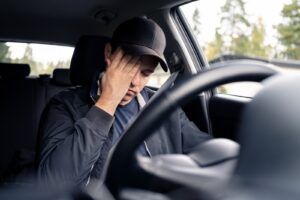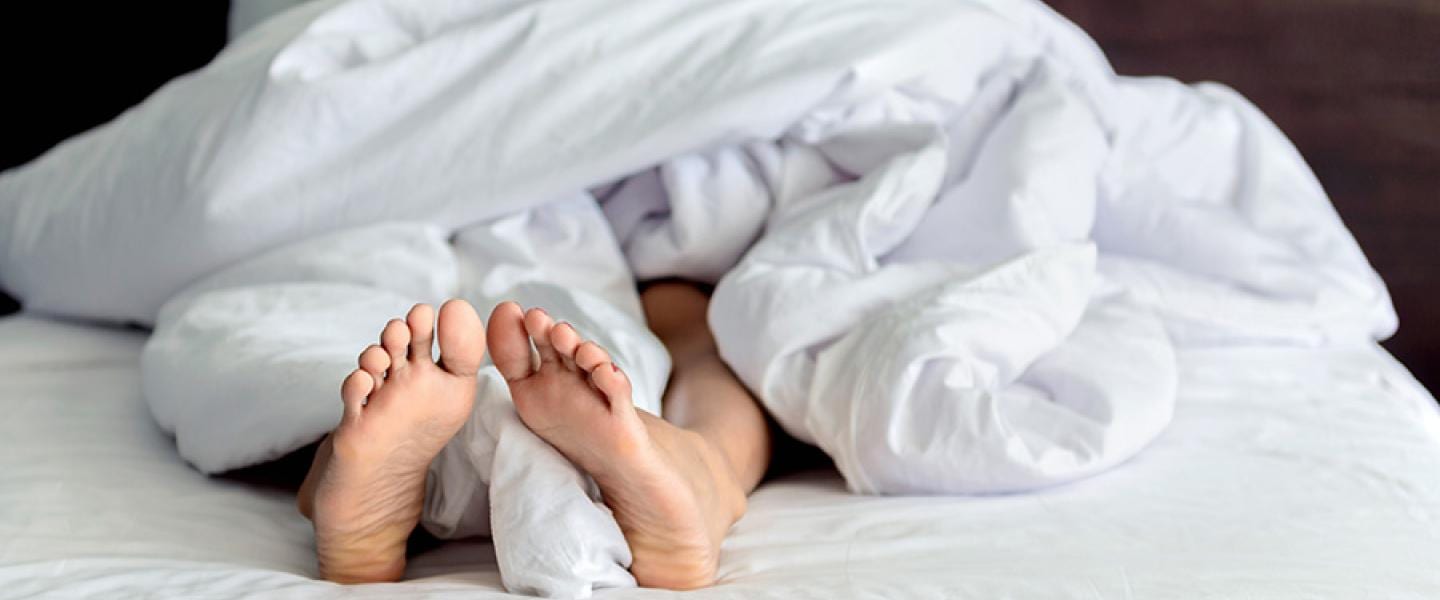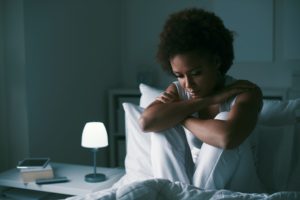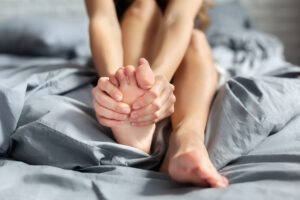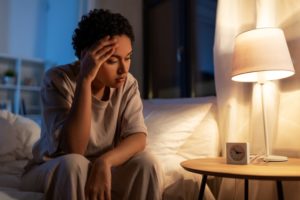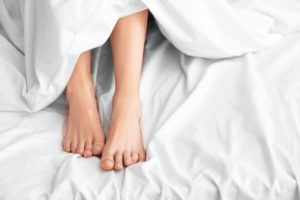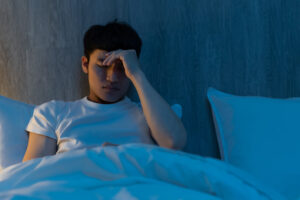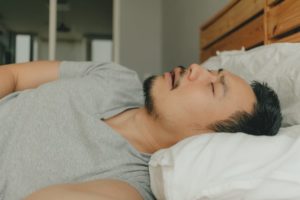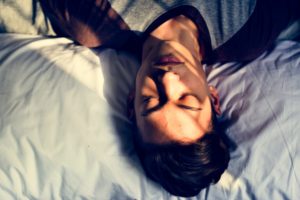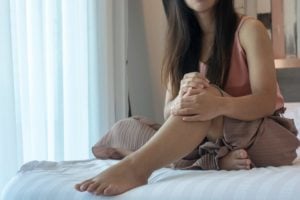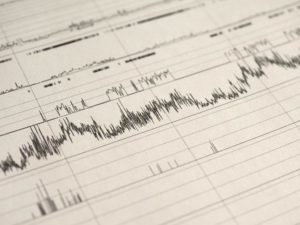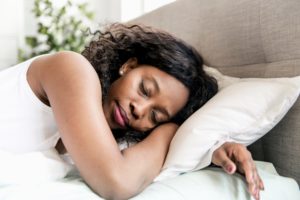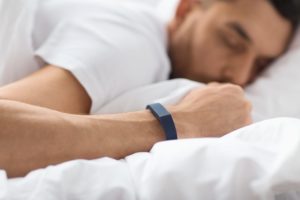Delayed Sleep Phase Disorder
- Delayed sleep phase disorder is a sleep disorder where the sleep-wake cycle is shifted to later hours.
- Symptoms include difficulty falling asleep and waking up early, potentially impacting daily life, work, school, and social activities.
- Diagnosis and treatment can help reduce its effects and realign your circadian rhythm with your ideal sleep schedule.
Delayed sleep phase disorder (DSPD), or delayed sleep-wake phase syndrome, is characterized by the inability to fall asleep, difficulty waking up on time, and, in some cases, daytime sleepiness or depression. If you have DSPD, you fall asleep and wake up later despite a regular sleep schedule. These symptoms may cause difficulties in school or work. DSPD most commonly occurs in adolescent men and middle-aged women.
What Is Delayed Sleep Phase Disorder?
DSPD is one of many circadian rhythm sleep disorders. The circadian rhythm is a 24-hour cycle run by your biological clock that controls essential body functions like temperature, hunger, digestion, the release of hormones, and when you fall asleep and wake up. Light and darkness influence your circadian rhythm, so it can be affected by late-night light from electronics, as well as jet lag from traveling across time zones.
There are two types of DSPD. These are characterized by the onset of melatonin, the sleep hormone:
- Circadian Aligned DSPD: Melatonin onset occurs less than three hours before sleep onset.
- Circadian Misaligned DSPD: Melatonin onset occurs more than three hours before bedtime, or melatonin onset doesn’t occur until after sleep onset.
Symptoms of DSPD
The most common sign of DSPD is being unable to fall asleep at a socially normal bedtime. This late bedtime makes waking up early difficult, and the lack of a full night of sleep can trigger many symptoms :
- Excessive Sleepiness: You may struggle to stay awake during the day or even find yourself nodding off.
- Difficulty Concentrating: Without enough sleep, you may struggle to stay focused or think clearly . You might also struggle to remember content.
- Difficulty Doing Usual Tasks: A lack of sleep can impair your judgment and ability to make choices.
- Abuse of Alcohol or Drugs: People with DSPD are at risk for misusing sleep aids, stimulants, or alcohol to fall asleep or stay awake.
These symptoms may worsen if you frequently change your sleep schedule, such as traveling across time zones.
Causes of DSPD
Common causes of circadian rhythm sleep disorders include:
- Irregular sleep schedule
- Being confined to bed for an extended period
- Lack of exposure to light
- Jet lag
- Damage to the brain, such as from injury, stroke, or degenerative disease
However, the exact cause of DSPD is still unclear. Some experts hypothesize that people with DSPD have longer circadian periods than average. A longer circadian period means that you won’t have the same biological drive to fall asleep at the same time as the average person. Alternatively, people with DSPD struggle to advance normally through the day because they miss a key window of alertness when waking later. Other theories suggest sensitivity to light at night or irregularities in the sleep regulatory system.

DSPD Risk Groups
DSPD is more prevalent in young men and middle-aged women. Overall, however, there is no significant difference in DSPD among genders. The disorder is also quite prevalent among adolescents and teenagers. The circadian rhythm changes during the teenage years, causing delays in the sleep-wake phase. The onset of melatonin, the sleep hormone, begins about an hour later in teens than adults. As a result, DSPD affects anywhere between 7% and 16% of adolescents . One study found that 90% of adults with DSPD experience onset of symptoms in childhood or adolescence.
Depression is common in people diagnosed with DSPD. Up to 64% of people with DSPD also have depression. New research also suggests a link between DSPD and ADHD . As many as 75% of adults diagnosed with ADHD in childhood also have circadian rhythm delays.
Diagnosing DSPD
Keeping a sleep diary is helpful in determining whether or not you may have DSPD. In the sleep diary, you note when you go to bed, when you fall asleep, and when you wake. This log helps your healthcare provider get a full picture of your sleep habits.
Your healthcare provider may also recommend an actigraphy. You wear the actigraph on your wrist like a watch, and the device records movement and light to determine when you are asleep or awake .
A sleep study, also called polysomnography, can also be used to diagnose DSPD. You may have to take the sleep study twice. On one test, you sleep to model a “weekday” schedule and on the other, you model a “weekend” sleep schedule. However, these tests may be cost-prohibitive.
Treatment for DSPD
If you think you have DSPD, talk to your healthcare provider about your symptoms. They can diagnose the disorder and help you determine an appropriate treatment plan. With consistent attention to sleep hygiene and use of other treatments, you can manage the effects of DSPD and even alter your sleep and wake times.
The goal of DSPD treatment is to align your circadian rhythm to meet target sleep and wake times. Treatment typically begins with improving sleep hygiene, and you may need to reset your sleep routine. Qualities of good sleep hygiene include:
- Keeping the bedroom cool, quiet, and dark
- Getting enough exercise and light exposure during the day
- Developing a relaxing bedtime routine, such as reading or taking a bath
- Avoiding all devices with light (such as cell phones, video game consoles, and TVs) in the hours before bedtime
- Getting out of bed if you cannot fall asleep after 20 minutes
In addition to improving sleep hygiene, bright light therapy is a viable treatment option. Research shows that bright light exposure in the first one or two hours of the morning advances your circadian rhythm. With your circadian rhythm advanced, you should fall asleep earlier and wake up earlier.
You might also consider a melatonin supplement in the hours before your bedtime. At this time, a consensus on exact timing and dosage of melatonin has not been established. Consult your doctor to determine how much to take and when to take it.

Still have questions? Ask our community!
Join our Sleep Care Community — a trusted hub of product specialists, sleep health professionals, and people just like you. Whether you’re searching for the perfect mattress or need expert sleep advice, we’ve got you covered. Get personalized guidance from the experts who know sleep best.
References
7 Sources
-
National Institute of General Medical Sciences. (2022, March 11). Circadian rhythms., Retrieved May 3, 2021, from
https://www.nigms.nih.gov/education/fact-sheets/Pages/circadian-rhythms.aspx -
Schwab, R. J. (2020, June). Circadian rhythm sleep disorders. Merck Manuals Consumer Version., Retrieved May 3, 2021, from
https://www.merckmanuals.com/home/brain,-spinal-cord,-and-nerve-disorders/sleep-disorders/circadian-rhythm-sleep-disorders -
MedlinePlus: National Library of Medicine (US). (2014, April 14). Healthy Sleep., Retrieved May 3, 2021, from
https://medlineplus.gov/healthysleep.html -
Figueiro, M. G. (2016). Delayed sleep phase disorder: Clinical perspective with a focus on light therapy. Nature and Science of Sleep, 8, 91–106.
https://pubmed.ncbi.nlm.nih.gov/27110143/ -
Carter, K. A., Hathaway, N. E., & Lettieri, C. F. (2014). Common sleep disorders in children. American Family Physician, 89(5), 368–77.
https://pubmed.ncbi.nlm.nih.gov/24695508/ -
Lunsford-Avery, J. R., & Kollins, S. H. (2018). Editorial Perspective: Delayed circadian rhythm phase: A cause of late-onset attention-deficit/hyperactivity disorder among adolescents?. Journal of Child Psychology and Psychiatry, and Allied Disciplines, 59(12), 1248–1251.
https://pubmed.ncbi.nlm.nih.gov/30176050/ -
Lawrence, G., & Muza, R. (2018). Assessing the sleeping habits of patients in a sleep disorder centre: A review of sleep diary accuracy. Journal of Thoracic Disease, 10(Suppl 1), S177–S183.
https://pubmed.ncbi.nlm.nih.gov/29445542/


